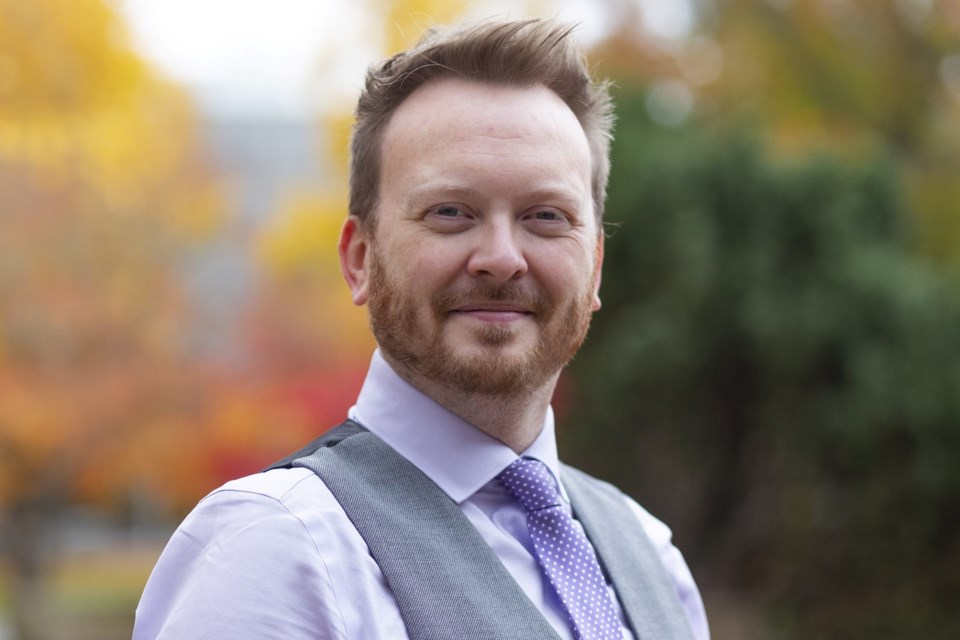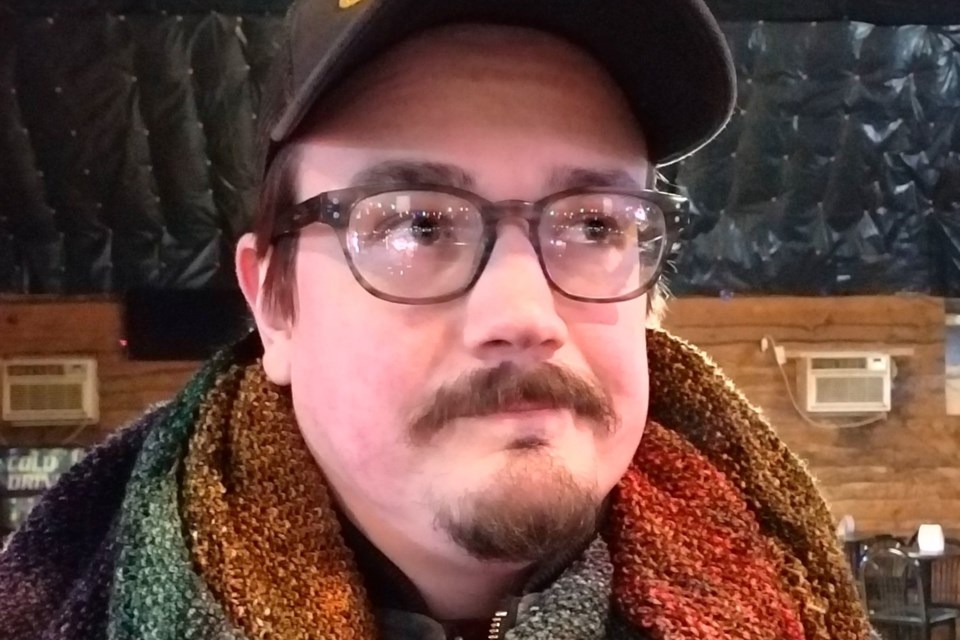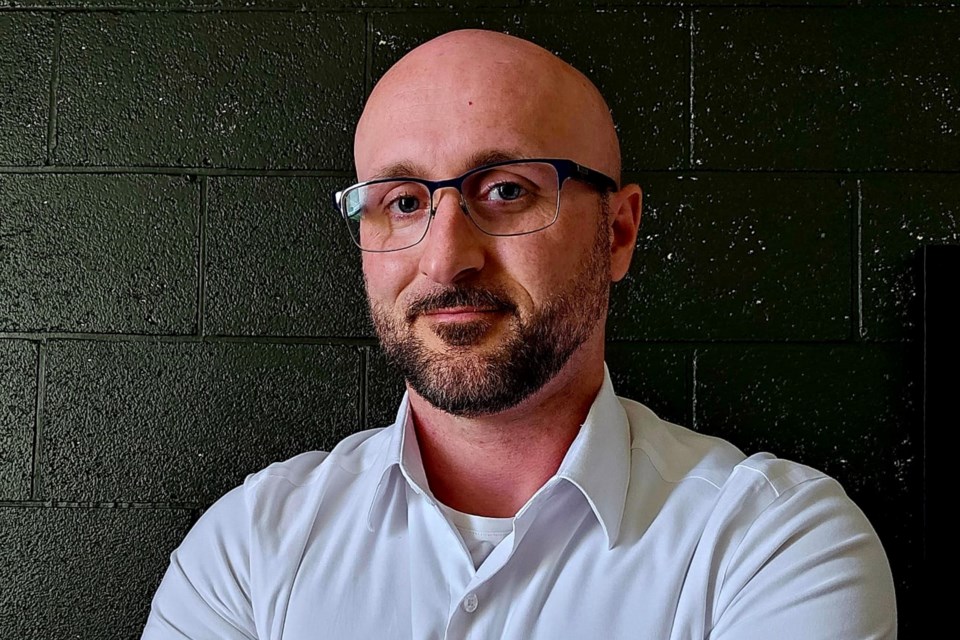Captain Sisko: “It’s not that they don’t give a damn. They’ve just given up. The social problems they face seem too enormous to deal with.”
Dr. Bashir: “That only makes things worse. Causing people to suffer because you hate them is terrible, but causing people to suffer because you have forgotten how to care, it's really hard to understand.”
This exchange comes from an episode in the third season of the show “Star Trek: Deep Space 9.”
Airing in 1995, “Past Tense: Part 1” and “Past Tense: Part 2” see several members of the crew trapped more than 300 years in the past — specifically in the year we’re currently living through: 2024.
In these episodes, the crew members become involved in a historic event called the Bell Riots, involving a revolt among members of “Sanctuary Districts” in the United States, where homeless, unemployed or people with mental illness are warehoused behind walls, out of sight.
In the wake of the Bell Riots, the Sanctuary Districts were abolished, and the United States began to face its social problems.
The date on which these riots are supposed to occur — fictionally of course — is Sept. 1, 2024.
The episodes were inspired by the Kent State shootings of anti-war protesters in 1970 and the Attica Prison Riot in 1971.
With many Star Trek fans noting that the Bell Riots date is coming up, Sudbury.com set out to speak to several of them to compare the 2024 of Star Trek to the real 2024, which has its own share of social problems.
That includes homelessness (and the encampments that come with that), escalating housing costs, poverty, income inequality, the opioid epidemic and more.
On the fictional 2024: ‘At least they acknowledged them’
As a huge Trekkie, Edwin Hodge, a sociologist at the University of Victoria, has Star Trek playing on repeat in his household, and said he probably rewatched the Bell Riots episode of DS9 (Deep Space Nine) just a few months ago.
He said the cynic in him thinks that although obviously problematic, the people of the fictional 2024 actually are dealing with social issues better than we are in the real 2024.

“They acknowledged the existence of those social problems,” said Hodge, who, pre-pandemic, taught (very popular) courses using Star Trek as a medium to discuss social inequalities.
“They attempted to solve them in a backwards, regressive, authoritarian, fascist kind of way, but at least they acknowledged them.
“In contemporary Canadian society, we very much don't seem to be doing that. When we talk about a homelessness problem, we don't recognize or seem to recognize the systemic, the structural dimensions of it.”
Hodge said we instead have fallen back on an old way of thinking, “which effectively says that if you're homeless, it's because you are a bad person or you've done something to basically deserve it. The way that we treat the housing crisis, the homeless crisis, opioid crisis is very much blame the individual and ignore all of the structural stuff.”
Further to Star Trek character Dr. Bashir’s observation that people in the fictional 2024 have forgotten how to care, Hodge said people in the real 2024 are actively encouraged not to care through economic and governance structures.
So will things change, as they did in fictional 2024?
Hodge said he doesn’t see things changing right now, as there’s no incentive for the people currently in charge to change anything. But younger politicians have been “radicalized against the status quo.”
“This is where my hopeful Trekkie side comes out, is that even though things are dark now, that’s not a guarantee they’re going to stay dark,” Hodge said.
‘Worse than their dystopian imagined future’
Will Burrows, an artist out of the United States who specializes in selling Star Trek merchandise based on progressive politics, has also made note of the approaching date of the fictional Bell Riots.
He’s been selling Bell Riots 2024 products, including stickers and t-shirts.

“In terms of homelessness in the U.S., at least, like this was meant to be a dystopian vision,” said Burrows, speaking of the episodes in question.
“But in many respects, I think what we have now could be regarded as worse than their dystopian imagined future. Although it's inadequate in the show, it seems like they have a more robust system for connecting people with social services than what we actually have today in the States.”
While the Past Tense DS9 episodes don’t imagine 2024 being very nice for a lot of people, “I think the actual 2024 is, in some ways, worse,” said Burrows, referring to the practice of dismantling of tent encampments.
In rewatching the episodes, Burrows is struck by the fact that short-lived riots brought about a fundamental change to policy in the fictional 2024.
The real uprisings this decade against police violence “ultimately didn’t result in very much changing,” he said. “Actually existing in 2024, I’m finding change to be much harder to get accomplished than it appears to be.”
‘I think we might actually see civil unrest in Canada’
Jordan Babando, a Trekkie as well as a criminology professor at Sudbury’s Laurentian University who specializes in the criminal justice aspect of homelessness, feels that Star Trek just about hit the real 2024 on the nose.
No, there’s no walls around Sudbury’s marginalized communities, but they are often pushed out of sight because people don’t want to see them.

“In reality, you don’t necessarily need a physical wall to isolate people and put them in their little ghettos or communities or pockets,” Babando said. “So if you remove the walls in Deep Space Nine from the sanctuaries, you get a really close look at what the reality is.”
In Sudbury, the tent encampment in Memorial Park that popped up during the pandemic was dismantled, but many others have since appeared in areas where it’s more difficult for their inhabitants to access services.
And homelessness is getting worse locally. It was reported earlier this summer that Sudbury's homeless population has doubled since last year.
A transitional housing complex to provide housing to the homeless is under construction on Lorraine Street in New Sudbury, but Babando points out that it’s far away from services, and the community in that area didn’t want the project there.
Babando doesn’t think there will actually be riots related to these social issues on Sept. 1, 2024, but he doesn’t think that’s out of the realm of possibility in the future, if homelessness continues to increase like it has been.
“As that happens, I think we might actually see civil unrest in Canada, in communities, as these families who are now not able to feed their family and provide adequate housing,” he said. “I can see issues with riots and protesting and a lot of civil unrest coming as this problem grows. If we don't deal with it now it becomes too expensive to deal with later.”
‘We just continued marching in that direction’
Another Sudbury Trekkie, Neil Stephen, also sees echoes of the marginalization of Sudbury’s homeless population in the Bell Riots DS9 episodes, and worries about encampments moving out of the city’s core, away from services — out of sight, out of mind.
He’s also reminded of the rhetoric of “Project 2025” in the United States, particularly around the proposed detention of migrants in that country. In the fictional 2024 of Star Trek, the sanctuary districts were used to house all sorts of “undesirable” populations.

Stephen, a member of Sudbury’s Klingon Assault Group cosplay club, is a former member of the Canadian Armed Forces, who has since trained as a registered nurse, and has worked with Sudbury’s marginalized population, particularly those who use drugs.
So how can we avoid a “Bell Riots” situation?
Well, that’s the “billion-dollar question,” Stephen said, but it starts by addressing unconscious bias and prejudice, and then providing services such as safe consumption sites (a topic that’s been in the news in Ontario lately) and other wrap-around services.
“Most people will say that they're worried about the homeless, and that they want to help the homeless population,” he said. “But when it comes to actually putting their money where their mouth is, or taking the necessary steps to do so, unfortunately, usually opinions and populism wins out over evidence-based practice and what we know scientifically to work better.”
When the Bell Riots episodes of DS9 came out 29 years ago, people saw it as entertainment and as a warning of things to come, Stephen said.
“But we just continued marching in that same direction,” he said. We did that by “deliberately following populist ideals, ignoring scientific data, and not viewing disenfranchised populations as equal to us.”
Heidi Ulrichsen is Sudbury.com’s assistant editor, and a devoted lifelong Trekkie.



